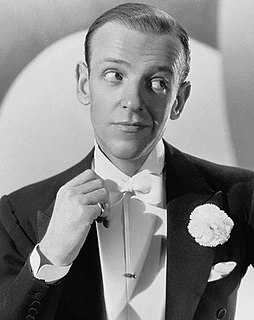A Quote by Constantin Stanislavski
In the given circumstances you must be rooted in the play. Do not depart from the play. Don't cut yourself off from your partner in the scene, or partners.
Related Quotes
You are preparing yourself for a scene, and the most important thing is to remain emotionally available and remain in the moment with your scene partner. You don't want to let your own self-consciousness block the flow of creativity that's coming out so that you can act and react, and play what the scene is all about.
Where do we end, and what is the self? You cut off your arm, you're still yourself. You cut off two of your arms, you're still yourself. You cut off your arms and your legs, you're still yourself, right? Also, the idea of the self seems to be embedded right around here, right around the eyes. Infants know to look at the eyes.
I never like to play for myself, and that is why I don't own a grand piano. To play for yourself is like looking at yourself in a mirror. I like to practice; that is to work at a task. But to play there must be an audience. New things happen when you play for an audience. You don't know what will occur. You make discoveries with the music, and it is always the first time. It is an exchange, a communion.
If you can do any favor for yourself, if you want to understand yourself, if you really want to build anything for yourself, try to make a plan to have a cozy home and a cozy partner. When even God may leave you, your partner should not-that kind of partner; a partner who does not know how to part. If your partner knows that he can part, he does not yet have the power to unite.
And the other was this: the doctor did want to take off my leg because he thought it was necessary. But you must remember boys in those days were raised for two things: work, and then they made their play; and if you couldn't play baseball and box and play football, why, your life was ended. That was in our boyish minds.
Here's a practice for dealing with envy...each time you find yourself envious of someone...ask yourself, "What is there that I am noticing in the other person that I want to find in myself?"...If it's money, is it the freedom? The cance to play that money buys? A sense of security? Whatever it is-more play, a sense of security, free time-you can work on getting more of it in your life, no matter what the circumstances.


































